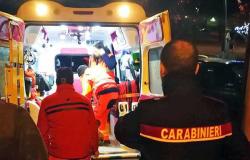Menico Rizzi is the new Rector of the University of Eastern Piedmont.
The second round of voting for the elections for the position of Rector of the University of Eastern Piedmont took place yesterday, Tuesday 25 June and today, Wednesday 26 June. 527 eligible voters voted (77.9%); the quorum was set at 264 votes. Professor Menico Rizzi was elected with 287 votes. The other candidates Mario Valletta and Michele Mastroianni obtained 216 and 17 votes respectively. There were 7 blank ballots. The new Rector, who will officially take office on November 1st, he will be at the helm of Upo for the six-year period 2024-2030, succeeding Gian Carlo Avanzi, who held the role in the six-year period 2018-2024. The Pro-rector will be Gianluca Gaidano, full professor of Blood Diseases at the Department of Translational Medicine at Upo.
The CV of the new Rector
Graduated in Chemistry in 1990 at the University of Pavia, he obtained a doctorate in Molecular Biotechnology at the Università Cattolica del Sacro Cuore, Piacenza and carried out research and training activities at the European Molecular Biology Laboratory (Embl) in Hamburg, Germany with Embo fellowship and at the University of York (UK). From 1997 to 1999 he was a researcher in Biochemistry at the Faculty of Pharmacy of the University of Turin and then from 1999 to 2004 associate professor in Biochemistry at the University of Eastern Piedmont. From 2004 to 2008 he was full professor in Molecular Biology and from 2008 to the present full professor in Biochemistry. He has also held numerous institutional positions: member of the Academic Senate; delegate of the Rector for Research; president of the Evaluation Unit; coordinator of the PhD in Pharmaceutical and Food Biotechnology. Outside the University he was a member of the Group of Expert Evaluators (Gev) for the Biological Sciences area in Vqr-2; president of the Evaluation Unit of the University of Genoa; member of the Board of Directors of the National Agency for the Evaluation of Universities and Research (Anvur) with delegations for the research doctorate, the medical area with attention to the accreditation process by the World Federation for Medical Education (WFME) and for evaluation research; member of the National Observatory on health professions; member of the ministerial technical table for the adoption of the teaching regulations for the course of study in Osteopathy; member of the ministerial technical table for the definition of new training paths for the nursing profession; member of evaluation commissions for the selection of university researchers, associate professors and full professors and for the selection and awarding of the PhD title at various universities. Since 2016 he has been a member of the group of experts for the WHO International Nonproprietary Names (INN) program with the role, starting from 2020, of vice-chair for biological drugs in the biennial consultations; from April to September 2019 vfgTechnical Officer at WHO; member of the Steering board of the Coalition for Advancing Research Assessment (Coara) since 2022, global initiative; member of the task force for the development and subsequently for the implementation of the African Union – European Union Innovation Agenda; member of commissions for the evaluation and selection of university professors in the Republic of South Africa and Nigeria and member of commissions for the awarding of the Phd degree at the University of Bergen, Norway and the University of Western Cape Town, Republic of South Africa. He is co-founder of the academic spin-off UPO Ixtal and a member of national and international scientific societies. From 2009 to 2019 he was UPO representative on the board of directors of the Inter-university Malaria Research Center – Italian Malaria Network.
His main research topics concern biochemical and biophysical studies of structure-function relationships in proteins of pharmaceutical interest for the treatment of tuberculosis and malaria; biochemical and biophysical studies of structure-function relationships in proteins involved in the central metabolism of the Nad cofactor in humans and pathogenic organisms, for the understanding of their pathophysiological role and evolutionary relationships; biochemical and biophysical studies of structure-function relationships in proteins of oncological interest involved in the biology of Nad in humans for the development of new therapeutic and diagnostic approaches; biochemical and biophysical studies of structure-function relationships with proteins of biotechnological interest for green chemistry processes; studies of new models for the evaluation of research activities.






